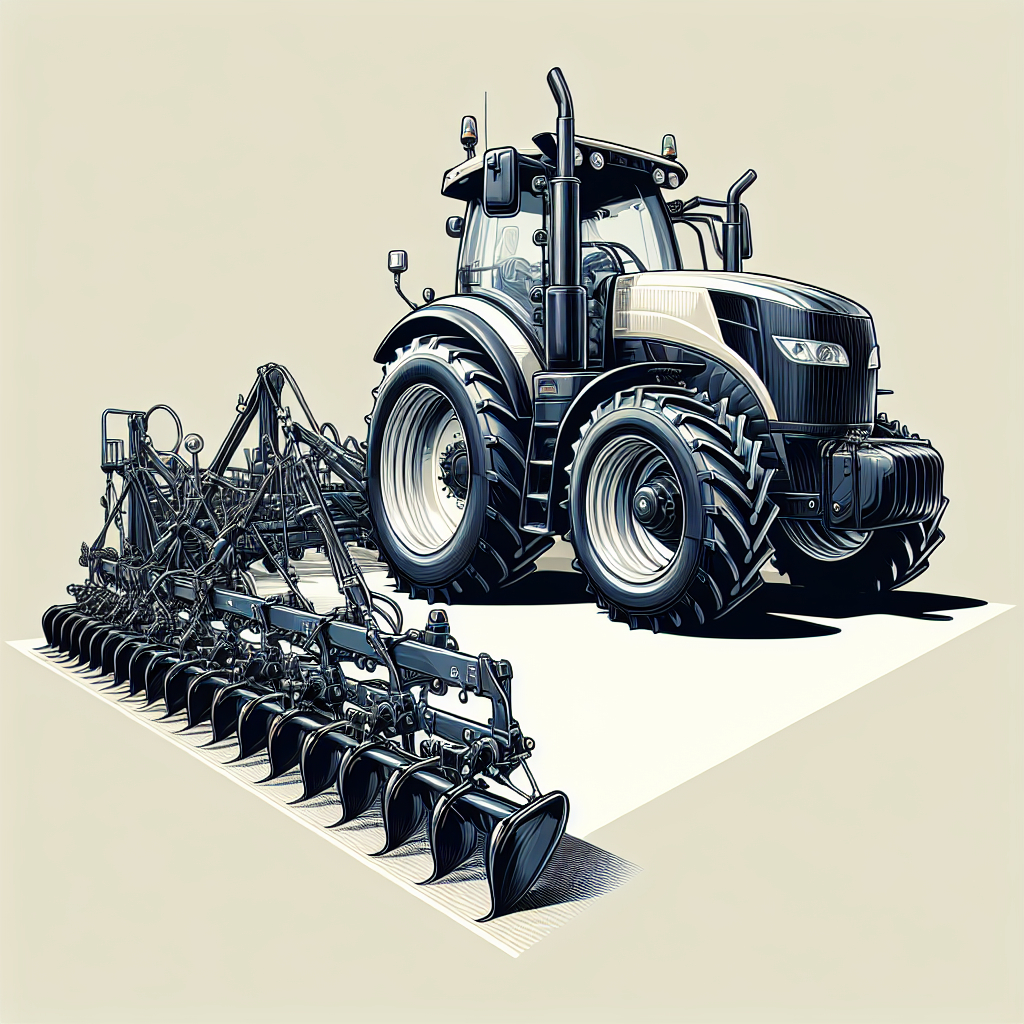Choosing the right tractor for your plowing equipment is a critical decision that can significantly impact the efficiency and effectiveness of your farming operations. The right tractor not only ensures that your plowing tasks are completed smoothly but also enhances productivity and reduces operational costs. This article will guide you through the essential factors to consider when selecting a tractor for plowing, helping you make an informed decision that meets your specific needs.
Understanding Your Plowing Needs
Before diving into the specifics of tractor selection, it’s crucial to have a clear understanding of your plowing needs. Different types of plowing tasks require different tractor specifications, and knowing what you need will help narrow down your options.
Type of Soil
The type of soil you are working with plays a significant role in determining the kind of tractor you need. For instance, heavy clay soils require more powerful tractors with higher torque to break through the dense material. On the other hand, sandy or loamy soils may not require as much power, allowing you to opt for a lighter, more fuel-efficient tractor.
Field Size and Terrain
The size and terrain of your fields are also important factors to consider. Larger fields may necessitate a tractor with a higher horsepower to cover more ground quickly. Additionally, if your fields have uneven terrain or slopes, you will need a tractor with good stability and traction to navigate these challenges safely.
Plowing Depth and Width
Different plowing tasks require different depths and widths of plowing. Ensure that the tractor you choose can handle the specific plowing depth and width required for your operations. This will often depend on the type of plow you are using and the crop you are preparing the soil for.
Key Tractor Specifications
Once you have a clear understanding of your plowing needs, the next step is to look at the key specifications of the tractors you are considering. Here are some of the most important factors to keep in mind:
Horsepower
Horsepower is one of the most critical specifications to consider when selecting a tractor for plowing. The horsepower of a tractor determines its ability to pull heavy plowing equipment and perform demanding tasks. Generally, higher horsepower tractors are more suitable for heavy-duty plowing tasks, while lower horsepower tractors are better for lighter tasks.
Torque
Torque is another essential factor to consider. It measures the tractor’s ability to generate rotational force, which is crucial for tasks that require significant pulling power, such as plowing through tough soil. A tractor with high torque will perform better in challenging conditions and provide more consistent performance.
Weight and Stability
The weight and stability of a tractor are important for ensuring safe and efficient plowing. A heavier tractor provides better traction and stability, especially on uneven terrain. However, it’s essential to balance weight with maneuverability, as overly heavy tractors can be challenging to operate in smaller fields or tight spaces.
Fuel Efficiency
Fuel efficiency is a critical consideration for any farming operation. Tractors that consume less fuel can significantly reduce operational costs over time. Look for tractors with modern, fuel-efficient engines that provide the power you need without excessive fuel consumption.
Hydraulic Capacity
The hydraulic capacity of a tractor determines its ability to operate various attachments and implements, including plows. Ensure that the tractor you choose has sufficient hydraulic capacity to handle the specific plowing equipment you plan to use.
Additional Features and Considerations
Beyond the basic specifications, there are several additional features and considerations that can enhance the performance and usability of your tractor for plowing tasks.
Comfort and Ergonomics
Plowing can be a time-consuming and physically demanding task, so it’s essential to choose a tractor with a comfortable and ergonomic design. Look for features such as adjustable seats, easy-to-reach controls, and a spacious cab to ensure a comfortable working environment.
Technology and Automation
Modern tractors come equipped with various technological advancements and automation features that can significantly improve efficiency and ease of use. GPS-guided steering, automated plowing systems, and real-time performance monitoring are just a few examples of technologies that can enhance your plowing operations.
Maintenance and Support
Regular maintenance is crucial for keeping your tractor in optimal condition and ensuring long-term reliability. Choose a tractor from a reputable manufacturer that offers comprehensive support and readily available spare parts. Additionally, consider the ease of performing routine maintenance tasks and the availability of local service centers.
Conclusion
Selecting the right tractor for your plowing equipment is a multifaceted decision that requires careful consideration of various factors. By understanding your specific plowing needs, evaluating key tractor specifications, and considering additional features and support, you can make an informed choice that enhances the efficiency and effectiveness of your farming operations. Investing in the right tractor will not only improve your plowing tasks but also contribute to the overall success and productivity of your farm.
